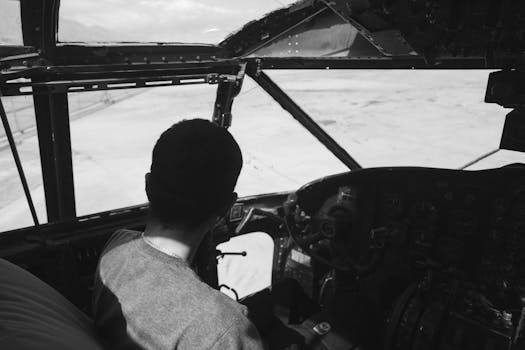You could do a college course like an introduction to cabin crew, or study a cabin crew module as part of a broader travel and tourism course.
Entry requirements
Entry requirements for these courses vary.
Flight attendants, sometimes called cabin crew, are responsible for ensuring the safety, comfort, and well-being of passengers on board commercial flights. Their duties include demonstrating safety procedures, serving food and drinks, providing first aid if necessary, and dealing with any emergencies that arise during a flight. Flight attendants must be able to remain calm under pressure, communicate effectively, and provide excellent customer service. The role often involves travel to different destinations, making it appealing for those who enjoy seeing new places, although it can also mean spending time away from home and working unsociable hours. Entry requirements typically include GCSEs (or equivalent), with airlines providing specific training once hired.

Flight attendants in the UK typically earn between £15,000 and £25,000 per year to start, with experienced crew earning up to £30,000 or more, especially on long-haul routes.
There are approximately 15,000 to 18,000 flight attendants employed in the UK, with annual openings fluctuating based on airline expansion and seasonal demand.
Flight attendants often work irregular hours, including weekends, nights, and public holidays, with shifts varying from a few hours to over 12 hours for long-haul flights.

Responsible for ensuring passenger safety and comfort on international or long-distance flights, often involving overnight stays abroad.
Provides personalised service to high-profile clients on private or chartered aircraft, focusing on luxury and privacy.

Leads and manages a team of cabin crew, ensuring high standards of safety and customer service are maintained throughout the flight.
Obtain at least 5 GCSEs at grades 4-9, including English and Maths, or equivalent qualifications.
Most airlines require a minimum of GCSEs for applicants, particularly in English and Maths, as clear communication and basic numeracy are essential for the role. Additional languages or subjects such as Travel and Tourism can be beneficial and may give you an edge during recruitment.
Work in customer-focused roles such as retail, hospitality, or travel to develop interpersonal skills.
Employers look for candidates with excellent customer service skills, so part-time jobs in shops, restaurants, or hotels can help you build relevant experience. Volunteering for customer-facing events or activities is also valuable.
Look for flight attendant or cabin crew vacancies with airlines and complete their application process.
Visit airline career websites and job boards for openings. The application process usually involves an online form, a CV, and sometimes a cover letter. Tailor your application to highlight customer service experience and relevant skills.
Participate in interviews and group assessments where your communication, teamwork, and problem-solving abilities are evaluated.
Assessment days may include group exercises, role-plays, and individual interviews. Research the airline and practice answering questions about customer service scenarios, safety, and teamwork.
If successful, complete the airline's intensive training programme covering safety, first aid, and customer service.
Training typically lasts between 4 to 8 weeks and covers emergency procedures, medical situations, security, and service delivery. You will need to pass practical and theoretical assessments to become a qualified flight attendant.
Explore relevant apprenticeships that can help you kickstart your career in Flight Attendant. Apprenticeships offer hands-on experience and training while earning a wage.
This page showcases various career options and the pathways to reach them. Each career listed here shares transferable skills and knowledge, making it easier for individuals to transition between them.
Your current career is highlighted to help you see how it fits into the broader landscape of potential career choices. By clicking on any career, you can learn more about it, including the training and education required to pursue it.
Remember, progressing in your career often involves further learning and training. This page provides insights into future career options as well as those that can lead up to your current one.
These career progression decisions are informed by comparing the skills and knowledge needed for different occupations, along with data on how people move between them. Explore the possibilities and discover the exciting journey ahead in your career!
Flight attendants and cabin crew share similar qualifications related to providing passenger service, ensuring safety, and managing in-flight emergencies. Both roles require excellent communication skills, customer service abilities, and the ability to handle challenging situations in a confined environment.
You can get into this job through:
You could do a college course like an introduction to cabin crew, or study a cabin crew module as part of a broader travel and tourism course.
Entry requirements for these courses vary.
You could apply to do a Cabin Crew Level 3 Advanced Apprenticeship.
This will take around 12 months to complete. You'll do on-the-job training and spend time with a college or training provider.
You'll usually need:
You could apply directly to airlines for a cabin crew job. Airlines set their own entry requirements, which can vary.
You'll be expected to have a good standard of spoken and written English. You'll also need to show that you have great customer service skills, so experience of working directly with the public is useful.
Some airlines and private training providers run short cabin crew preparation courses, which may help your chances of getting a job, though these are not essential.
Certain airlines have online career quizzes you can do to test whether working as air cabin crew is for you, before you apply.
Being able to speak a second language may give you an advantage for some jobs.
Explore other careers or use our AI to discover personalised paths based on your interests.
Address
Developing Experts Limited
Exchange Street Buildings
35-37 Exchange Street
Norwich
NR2 1DP
UK
Phone
01603 273515
Email
[email protected]
Copyright 2025 Developing Experts, All rights reserved.
Unlock expert-designed lessons, resources, and assessments tailored for educators. No credit card required.
Claim Your Free Trial →